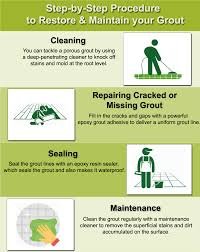When a person suffers injuries due to another party’s negligence—such as in a car accident, workplace injury, or medical malpractice—they usually face an important decision: should they accept a settlement or pursue a court trial?
Both paths have their advantages and disadvantages. A settlement may provide quick and predictable compensation, while a trial could result in a larger payout but comes with more time, expense, and emotional strain. Understanding the differences between the two options is crucial for anyone involved in a personal injury case.
This comprehensive guide explores the key differences between settlements and trials, their pros and cons, and the factors to consider before deciding which option is right for you.
What Is a Personal Injury Settlement?
A settlement occurs when the injured party (plaintiff) and the at-fault party (defendant) or their insurance company reach an agreement without going to court. The defendant agrees to pay a specific amount of compensation, and in exchange, the plaintiff agrees not to pursue further legal action.
Advantages of Settlements
-
Faster Resolution – Most settlements are finalized in a matter of weeks or months, unlike trials which may drag on for years.
-
Lower Costs – Settling usually means fewer attorney fees, reduced court costs, and no expenses for expert witnesses.
-
Predictability – You know exactly how much you will receive before signing.
-
Less Stressful – Settlements avoid the emotional burden of testifying, facing cross-examinations, and waiting for jury decisions.
-
Privacy – Settlements are private, while trials are public and may become part of the court record.
Disadvantages of Settlements
-
Lower Compensation – Insurance companies often negotiate aggressively to minimize payouts.
-
No Public Accountability – The defendant avoids public acknowledgment of fault.
-
Final and Binding – Once a settlement is signed, the case usually cannot be reopened, even if future medical expenses arise.
What Is a Court Trial in Personal Injury Cases?
A court trial happens when both sides cannot agree on a settlement, and the case is presented before a judge or jury. The outcome depends on evidence, witness testimony, and legal arguments.
Advantages of Court Trials
-
Potentially Higher Compensation – Juries may award more than what insurance companies offer.
-
Accountability – The defendant is publicly held responsible for negligence.
-
Legal Precedent – Court rulings can influence future cases.
-
Sense of Justice – For some victims, trials provide emotional closure and validation.
Disadvantages of Court Trials
-
Time-Consuming – A trial may take several years from filing to verdict.
-
High Costs – Attorney fees, court expenses, and expert witnesses can significantly increase costs.
-
Unpredictable Outcomes – Juries are unpredictable, and even strong cases can be lost.
-
Emotional Toll – Reliving the accident during testimony can be emotionally draining.
 Key Differences Between Settlements and Trials
Key Differences Between Settlements and Trials
| Factor | Settlements | Court Trials |
|---|---|---|
| Timeframe | Weeks to months | Months to years |
| Costs | Lower (fewer legal expenses) | Higher (attorney fees, court costs) |
| Outcome Control | Negotiated and predictable | Uncertain, decided by jury/judge |
| Compensation | Usually lower but guaranteed | Potentially higher, but not certain |
| Privacy | Confidential | Public record |
| Stress Level | Minimal | High (emotional and mental strain) |
Real-World Example
-
Settlement Example: A car accident victim with minor injuries accepts $50,000 in compensation within three months of filing. The money helps cover medical bills and lost wages quickly.
-
Trial Example: A workplace injury victim rejects a $100,000 settlement, goes to trial, and is awarded $300,000. However, the trial took two years, cost more in legal fees, and caused significant stress.
This illustrates that the right decision depends on the circumstances of the case.
Statistics About Settlements vs. Trials
-
Nearly 90–95% of personal injury cases are resolved through settlements.
-
Only about 5–10% go to trial, and out of those, many still settle before the final verdict.
-
Trials often result in higher compensation, but the uncertainty makes most plaintiffs prefer settlements.
Factors to Consider Before Deciding
-
Strength of Evidence – Strong, undeniable evidence may favor a trial. Weak evidence may make settlement a safer choice.
-
Financial Needs – If you require immediate funds for medical bills or daily expenses, settlement is usually the better route.
-
Risk Tolerance – Trials are risky; you could win big or walk away with nothing.
-
Time Commitment – Trials demand patience; settlements are more efficient.
-
Emotional Readiness – Be prepared for the stress of court proceedings.
-
Attorney’s Guidance – A skilled personal injury lawyer can help you weigh the risks and benefits of both options.
When Is Settlement the Better Choice?
-
Minor to moderate injuries with clear liability.
-
When financial needs are urgent.
-
When you want to avoid publicity or stress.
When Is Trial the Better Choice?
-
Severe or life-changing injuries with long-term consequences.
-
When the defendant refuses to offer a fair settlement.
-
When accountability and justice matter as much as money.
FAQs
1. Do most personal injury cases go to trial?
No. Around 90% of cases are settled outside court.
2. Can I reject a settlement offer?
Yes, you can reject it and proceed to trial if you and your attorney believe the offer is unfair.
3. Which option gives higher compensation?
Trials often result in higher awards, but they are riskier and more time-consuming.
4. Can settlements be taxed?
In many cases, compensation for personal injury (medical expenses, pain and suffering) is not taxable, but consult a tax expert for clarity.
5. Should I always listen to my lawyer’s advice?
Yes, your lawyer understands the legal system, potential outcomes, and negotiation tactics better than anyone else.
Conclusion
The choice between personal injury settlements and court trials is one of the most important decisions an injured victim will make. Settlements provide speed, privacy, and certainty but may offer lower payouts. Trials, on the other hand, can bring higher compensation and public accountability but involve time, money, and emotional strain.
Ultimately, the best path depends on your injuries, financial needs, evidence strength, and willingness to take risks. Consulting an experienced personal injury lawyer is the most effective way to determine which option will help you secure the compensation and justice you deserve.











